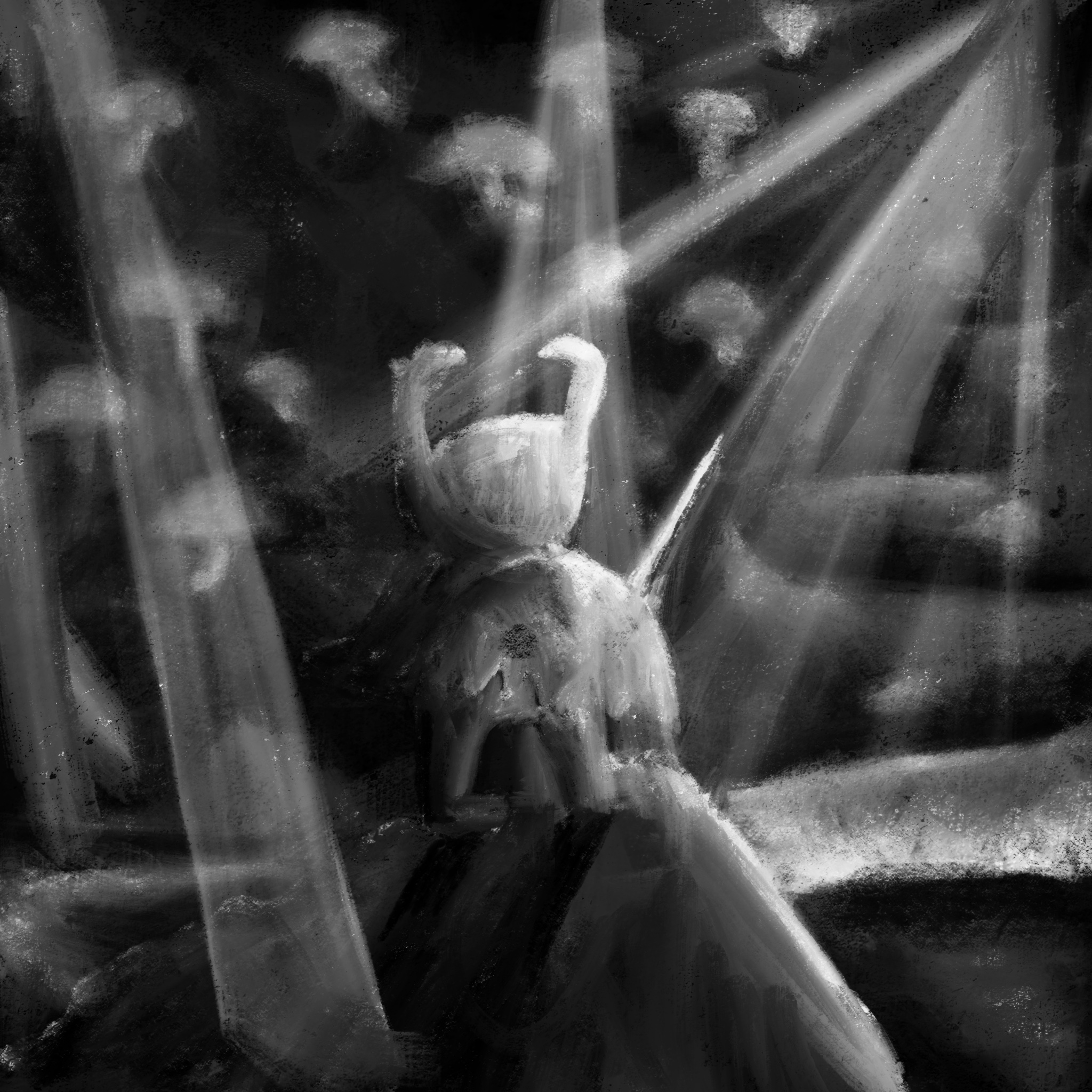Hollow Knight: A Hero’s Journey
February 24, 2023
 Sophie Burchell
Sophie BurchellMany games allow their players to be Gods. They tune their worlds to the pitch of our whistles and fill our sails with the boon of strong winds. They give us vast oceans, a drive and a dream, and then they lead us straight to the treasure. And so, the view from the crow’s nest is quite nice, and Narcissus’s puddle shines brighter. But now, many players in need of a real rush, may yearn for the wheel or a lighter. Because in games without stakes, without the trials of real trailblazing, we may mutiny, find land and be stranded. Or if left out in waters, now lost without help, we may sink our own ship to find depth.
See, good graphics are good and not much else when it comes to the sense of exploration. To have room for a journey you must make use of one’s agency, allow players to set sail themselves. Many games make this leap, add this nuance. Their worlds are well-crafted and free to roam. But one game in particular matched myth and let the player in for an odyssey.
“Hollow Knight,” by Team Cherry, gives you the potential of a god, without any of the coddling charity. It does make you immortal—this is not an arcade—but you’re plunged into, lost in, an anthill. Seriously, you’re a god among bugs—and in deep caverns, surrounded by tunnels and shells, you certainly learn the meaning of humility. Despite your small stature, however, it’s all yours—the burden to unearth and restore, to save a bug’s culture from extinction. And so you’ll be forced to find paths, with a lightning bug as a lantern.
As you break out of a cave to complete the tutorial, (what better way to prove one’s own agency?) your character is immediately at a lack for words; your first mentor, an old bug, waits patiently. Your character, you realize, is a man of action, immersed in a world of stagnation. He’s a true vessel for agency, in need of no words, bound to be the subject of diction. He’s the hero, it’s his epic, but it will be in your meter. What comes next is your best prediction. But that nearby well looks pretty inviting, and a leap down it would certainly be exciting. You’ll take your first chance, cross from town into tunnels. You’ll leave the comfortable behind for the challenging.
The game, then, rewards you with story. It gives you the trials of your realization. Your bug enters the unknown, seeks guidance and fights Gods, coming back from the brink better-knowing. He sees his own birthplace, his abyss and meets his father. He comes to know the fragile source of his power. And upon finding the Queen, and receiving her gift, he may finally stand up to corruption. Joseph Campbell, certainly, would be proud; I could imagine him picking up the controller. Because what sets “Hollow Knight” truly apart from other games is its faithfulness to the forms of narrative genre.
Perhaps the most defining factor of Hollow Knight, and an example of interactive media’s potential to profoundly explore one’s agency, is in how it deals with death. It forces you to fully own up to your regrets, to make up for the rashness of your past and its complications. You’ll find yourself, having made the long way back to where you last fell, taking on your own soul in fierce battle. And so you’re pushed back to the brink, again and again, and may even fall into a cycle. You’ll be humbled repeatedly in the dark tunnel, by the light of your soul armed with fireballs. In the face of your own vigor you’ll be mercilessly humbled and may just have to come back and try later. And so in this way, progress is made precious, since a fallback can be truly punishing. But this cycle of rebirth—of challenge and crossroads—proves always to be truest to life. Because in all things that matter, we’re our own worst enemies. We’re the most meaningful sources of strife.
So if you want a game with gravity, where the pressure of a world rests on your shoulders—but also a game with audacity, the audacity to punish your hubris—pick up “Hollow Knight.” Be a God and take on the real responsibility of your power. Lose your way, lose your soul, lose your sword and be forced to battle back from the brink of mortality. Because as Joseph Campbell and all the legends of epic know, to seek the heavens one must often traverse hell. Because only then, in triumph or return, could one know what it means to be a hero—it means time, it means sacrifice, it means action. It means scars that tell a good story.

Comments
Before submitting a comment, please review our comment policy. Some key points from the policy: